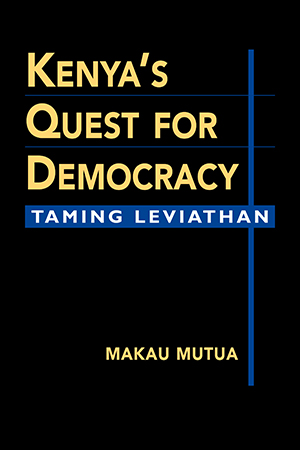Tracing the trajectory of postcolonial politics, Makau Mutua maps the political forces that have shaped contemporary Kenya. He also critically explores efforts on the part of both civil society and the political opposition to reform the state. Analyzing the tortuous efforts since independence to create a sustainable, democratic state, he uses the struggle over constitutional reform as a window for understanding the larger struggles confronting Kenyan society.
Makau Mutua is SUNY Distinguished Professor and Floyd H. and Hilda L. Hurst Faculty Scholar at the State University of New York at Buffalo Law School.
"Mutua writes from a fascinating first-hand perspective in his timely new book.... Essential reading for those concerned with constitution-building in Africa, and indeed the nature of the colonial and post-colonial state.... This is a valuable contribution."—Myles Osborne, Journal of Modern African Studies
"Specialists in Kenya have long lamented the lack of a concise and authoritative book on the country’s tormented process of political change since 1991. Kenyan lawyer and human rights activist Makau Mutua has admirably filled this gap."—Stephen Orvis, Political Science Quarterly
"One of those all-too-rare books that is full of insightful analysis by a key player with a privileged vantage point."—Jacqueline M. Klopp, African Studies Review
"A solid introduction to contemporary Kenyan politics, as well as a savvy reflection on democratization in an African context."—Nicolas van de Walle, Foreign Affairs
"Rarely does a book enter the public domain with better timing than Makau Mutua’s incisive study.... Comprehensive, balanced and deeply informed by both scholarship and observation."—Kurt Schillinger, South African Journal of International Affairs
"Excellent as a guide to contemporary Kenyan politics.... Highly recommended."—Choice
"An insightful and thorough treatment.”—Library Journal
"A pleasure to read.... Mutua's insightful focus on Kenya's painful constitutional process goes to the heart of Kenyan politics and the nature of the postcolonial state in Africa."—Frank Holmquist, Hampshire College






